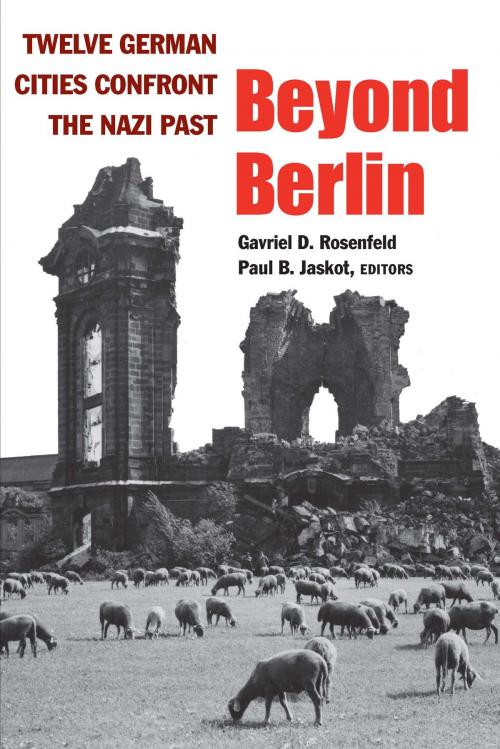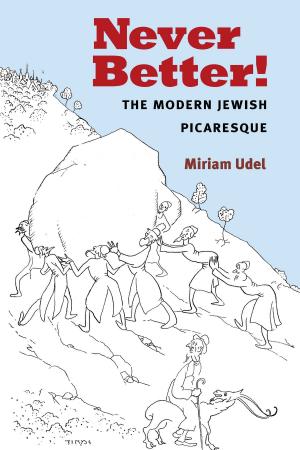Beyond Berlin
Twelve German Cities Confront the Nazi Past
Nonfiction, History, Jewish, Holocaust, Germany| Author: | ISBN: | 9780472025886 | |
| Publisher: | University of Michigan Press | Publication: | March 11, 2010 |
| Imprint: | University of Michigan Press | Language: | English |
| Author: | |
| ISBN: | 9780472025886 |
| Publisher: | University of Michigan Press |
| Publication: | March 11, 2010 |
| Imprint: | University of Michigan Press |
| Language: | English |
*Beyond Berlin *breaks new ground in the ongoing effort to understand how memorials, buildings, and other spaces have figured in the larger German struggle to come to terms with the legacy of Nazism. The contributors challenge reigning views of how the task of "coming to terms with the Nazi Past" (Vergangenheitsbewältigung) has been pursued at specific urban and architectural sites. Focusing on west as well as east German cities—whether prominent metropolises like Hamburg, dynamic regional centers like Dresden, gritty industrial cities like Wolfsburg, or idyllic rural towns like Quedlinburg—the volume's case studies of individual urban centers provide readers with a more complex sense of the manifold ways in which the confrontation with the Nazi past has directly shaped the evolving form of the German urban landscape since the end of the Second World War. In these multidisciplinary discussions of important intersections with historical, art historical, anthropological, and geographical concerns, this collection deepens our understanding of the diverse ways in which the memory of National Socialism has profoundly influenced postwar German culture and society.
Scholars and students interested in National Socialism, modern Germany, memory studies, urban studies and planning, geography, industrial design, and art and architectural history will find the volume compelling. Beyond Berlin will appeal to general audiences knowledgeable about the Nazi past as well as those interested in historic preservation, memorials, and the overall dynamics of commemoration.
*Beyond Berlin *breaks new ground in the ongoing effort to understand how memorials, buildings, and other spaces have figured in the larger German struggle to come to terms with the legacy of Nazism. The contributors challenge reigning views of how the task of "coming to terms with the Nazi Past" (Vergangenheitsbewältigung) has been pursued at specific urban and architectural sites. Focusing on west as well as east German cities—whether prominent metropolises like Hamburg, dynamic regional centers like Dresden, gritty industrial cities like Wolfsburg, or idyllic rural towns like Quedlinburg—the volume's case studies of individual urban centers provide readers with a more complex sense of the manifold ways in which the confrontation with the Nazi past has directly shaped the evolving form of the German urban landscape since the end of the Second World War. In these multidisciplinary discussions of important intersections with historical, art historical, anthropological, and geographical concerns, this collection deepens our understanding of the diverse ways in which the memory of National Socialism has profoundly influenced postwar German culture and society.
Scholars and students interested in National Socialism, modern Germany, memory studies, urban studies and planning, geography, industrial design, and art and architectural history will find the volume compelling. Beyond Berlin will appeal to general audiences knowledgeable about the Nazi past as well as those interested in historic preservation, memorials, and the overall dynamics of commemoration.















